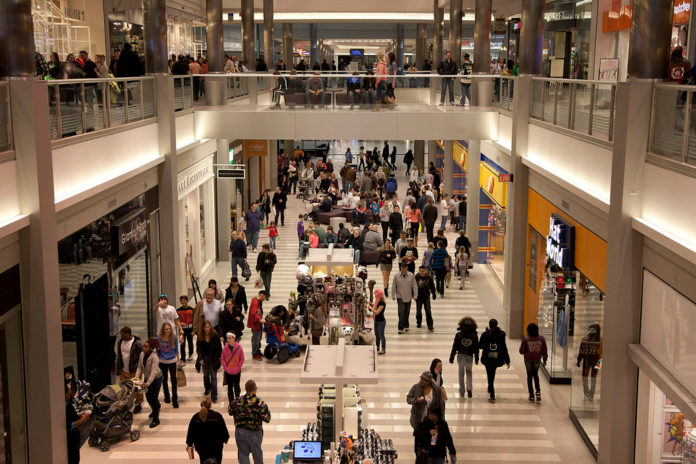
WASHINGTON – Consumer confidence in the U.S. dropped in October to a 10-month low, showing the reopening of the federal government failed to reassure households.
The Thomson Reuters/University of Michigan final consumer sentiment index decreased to 73.2, the weakest this year, from 77.5 in September. The median estimate in a Bloomberg survey called for a decline to 75 compared with a preliminary reading of 75.2.
The government’s partial closing prompted Americans to turn more pessimistic about the economy, whose recovery continues to be uneven. At the same time, record stock prices and rising property values will enhance some households’ ability to spend as the holiday-shopping season approaches.
“We know that consumer confidence was negatively affected by the shutdown and by the debt-limit drama,” Ryan Wang, a New York-based economist at HSBC Securities USA Inc., said before the report. “Now it’s a question of how long it will take for sentiment to recover.”
Estimates of the 52 economists surveyed ranged from 71 to 78. The index averaged 89 in the five years prior to the recession that began in December 2007, and 64.2 during the 18-month slump that ended in June 2009.
Shares rise
Stocks rose, sending the Standard & Poor’s 500 Index toward a record close, as revenue from Amazon.com Inc. and Microsoft Corp. topped estimates and the weak sentiment readings raised expectations that the Federal Reserve will delay scaling back monetary stimulus. The S&P 500 rose 0.3 percent to 1,757.16 at 10:07 a.m. in New York.
The Michigan sentiment survey’s current conditions gauge, which measures Americans’ view of their personal finances, decreased to 89.9 from 92.6 last month.
The barometer of expectations six months from now dropped to 62.5 this month, the weakest in almost two years, from 67.8 in September.
The Michigan sentiment index decreased along with the Bloomberg Consumer Comfort Index, which has tumbled each of the last four weeks. The Bloomberg gauge fell in the period ended Oct. 20 to minus 36.1, the lowest since February, from minus 34.1.
Stronger gains in hiring would help boost spending. The unemployment rate dropped 0.1 percentage point to 7.2 percent, the lowest since November 2008, Labor Department figures showed this week. Employers added 148,000 workers to payrolls in September, fewer than projected in a Bloomberg survey of economists.
Home values
At the same time, rising home values are helping mend balance sheets for some Americans. House prices increased 8.5 percent in the year ended August, the Federal Housing Finance Agency said earlier this week.
Some companies are seeing the results of customers having to curb spending on discretionary items like dining out when faced with having to replace an aging automobile or other big-ticket item.
“Consumer sentiment is guarded at best,” said Wyman T. Roberts, CEO and president of Brinker International Inc., the Dallas-based owner of restaurant franchises such as Chili’s and Olive Garden, in an Oct. 23 earnings call. “While employment rates are showing signs of improvement, casual dining in particular is being impacted by struggles many young adults are facing.”
Retailers will probably have subdued sales in the coming weeks, according to Mark Vitner, a senior economist in Charlotte, N.C., for Wells Fargo Securities LLC, the top forecasting firm of retail sales for the past two years, according to data compiled by Bloomberg.
“I think holiday retail sales are going to have a hard time rising much more than 3 to 4 percent,” Vitner said. “The economy had less momentum going into the government shutdown than we thought.”











